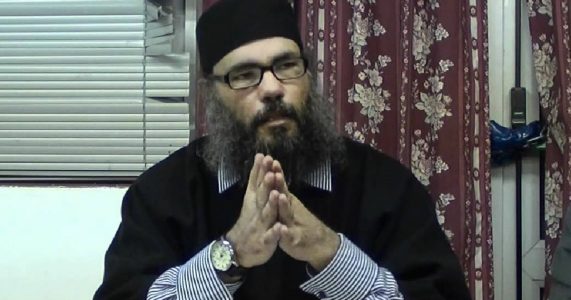
Preacher who influenced the Tunisia beach atrocity gets £123k of legal aid to fight deportation
A preacher named as influencing the perpetrators of the Tunisian beach massacre has won £123,000 in legal aid to fight deportation, it emerged today.
Hani al-Sibai, a cleric suspected of influencing “Jihadi John”, lives in a £1 million house leafy street in fashionable west London.
Egyptian-born al-Sibai, 55, reportedly lives on £50,000 a year in handouts, disability living allowance, with his wife and five children.
He arrived in Britain in 1994 and was refused asylum in 1998 because of his alleged involvement with the Egyptian terror group Islamic Jihad.
Al-Sibai was detained while the Government tried to deport him, but had to be freed after less than a year because Egypt failed to provide assurances that he would not be in danger there.
Human rights laws make it impossible for suspects to be returned to countries where they might be tortured or killed.
Over two decades he has received £123,000 in legal aid, which paid for representation by top human-rights lawyers, the Daily Mail reported.
Al-Sibai has been named as an influence on Tunisian terror group Ansar al-Sharia, which authorities believe to have recruited and trained Seifeddine Rezgui Yacoubi, who killed 38 tourists at the five-star Riu Imperial Marhaba Hotel in Sousse on June 26 2015.
It comes as an inquest into the deaths of British holidaymakers killed in a terrorist attack in Tunisia is expected to hear evidence relating to three victims today.
He is cited at length in a 2013 report by the International Centre for Counter-Terrorism in The Hague, and is described as one of its “key influencers”.
Security services are understood to be investigating alleged links between al-Sibai and his influence on the west London terror network in which Jihadi John – unmasked as Mohammed Emwazi – operated.
It is claimed that al-Sibai, a charismatic preacher, had influenced a number of young Muslim men who subsequently went abroad to fight jihad.
In a 2014 court case, he was accused of having “provided material support to al-Qaeda and conspired to commit terrorist acts”, an allegation he denied.
The Ministry of Justice said it had cut fees paid to lawyers in legal aid cases by more than 20 per cent since 2010.
A spokesman added: “Applications for legal aid are subject to a strict means test. Those who do meet the relevant thresholds may still be required to pay a significant contribution towards the costs of their defence.”
Source: Telegraph





